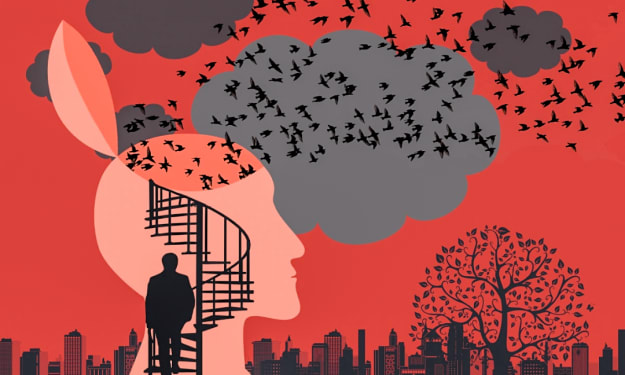The Enigmatic World of Lucid Dreaming: Unraveling the Boundaries of Reality
Unlocking the Hidden Realms of Sleep: The Astonishing Phenomenon of Lucid Dreaming

Throughout human history, dreams have captured our imagination and curiosity. They have been a subject of wonder, mystique, and even fear. But among the many types of dreams, one phenomenon stands out: lucid dreaming. Lucid dreaming is an extraordinary state where the dreamer becomes aware of the dream itself, allowing them to actively participate, control, and even shape their dream experiences. In this article, we will delve into the fascinating world of lucid dreaming, exploring its science, potential benefits, and the mysteries that surround this unique realm of consciousness.
The Science Behind Lucid Dreaming
Lucid dreaming was first officially coined by Dutch psychiatrist Frederik van Eeden in 1913, but cultures around the world have acknowledged and practiced it for centuries. In recent years, scientific research has brought lucid dreaming into the spotlight, revealing the brain's incredible capacity during these altered states of consciousness. Modern neuroscientific studies have shown that lucid dreaming is associated with increased activity in the prefrontal cortex, the region responsible for self-awareness, decision-making, and metacognition. During a typical dream, the prefrontal cortex is mostly inactive, leading to a lack of awareness or control. However, in lucid dreaming, this area "wakes up," granting dreamers the ability to question reality and take charge of their dream environment.
Exploring Lucid Dreaming Benefits
Beyond the thrill of flying through imaginary landscapes or meeting long-lost heroes, lucid dreaming has shown potential benefits in several areas:
Therapeutic Potential: Some therapists have explored using lucid dreaming as a tool for overcoming fears, nightmares, and trauma. By confronting and altering dream scenarios, individuals may find relief and empowerment in the face of real-life challenges.
Enhancing Creativity: Lucid dreaming may stimulate creative thinking, as dreamers can access a vivid, uninhibited world of inspiration where they can explore new ideas and concepts.
Practicing Skills: Surprisingly, lucid dreaming can improve real-life skills. Athletes, musicians, and even public speakers have used lucid dreams to rehearse and refine their abilities in a safe, simulated environment.
Personal Growth: Lucid dreaming offers an opportunity for self-exploration and introspection. By engaging with their subconscious, dreamers can gain insights into their fears, desires, and unresolved emotions.
The Unanswered Questions
As with many areas of consciousness research, lucid dreaming still holds its share of mysteries:
The Origins of Lucidity: While some individuals can naturally experience lucid dreams, others have to practice and cultivate the skill. The exact factors that contribute to this difference remain uncertain.
Shared Lucid Dreams: Anecdotal accounts suggest the possibility of multiple individuals sharing the same lucid dream space. Though rare, such occurrences raise intriguing questions about the interconnectedness of human consciousness during dreaming.
Limits of Control: While lucid dreamers can manipulate certain elements of their dreams, there seem to be inherent limits. Understanding these boundaries could unveil more about the relationship between the conscious and subconscious mind.
Conclusion
Lucid dreaming stands as a tantalizing bridge between the conscious and subconscious realms of human experience. Through its study, researchers hope to unlock more profound insights into the nature of consciousness, reality perception, and the untapped potential of the human brain. Whether used for personal growth, creativity, or simply for the pure joy of exploration, lucid dreaming offers an adventure that transcends the boundaries of everyday reality.
As our understanding of lucid dreaming continues to evolve, it may lead us to ponder the ultimate question: Are we the dreamers, or are we merely the dreams themselves?
Disclaimer: The content of this article is for informational purposes only and should not be considered a substitute for professional advice, diagnosis, or treatment. Always consult a qualified expert for any personal or medical concerns.





Comments
There are no comments for this story
Be the first to respond and start the conversation.